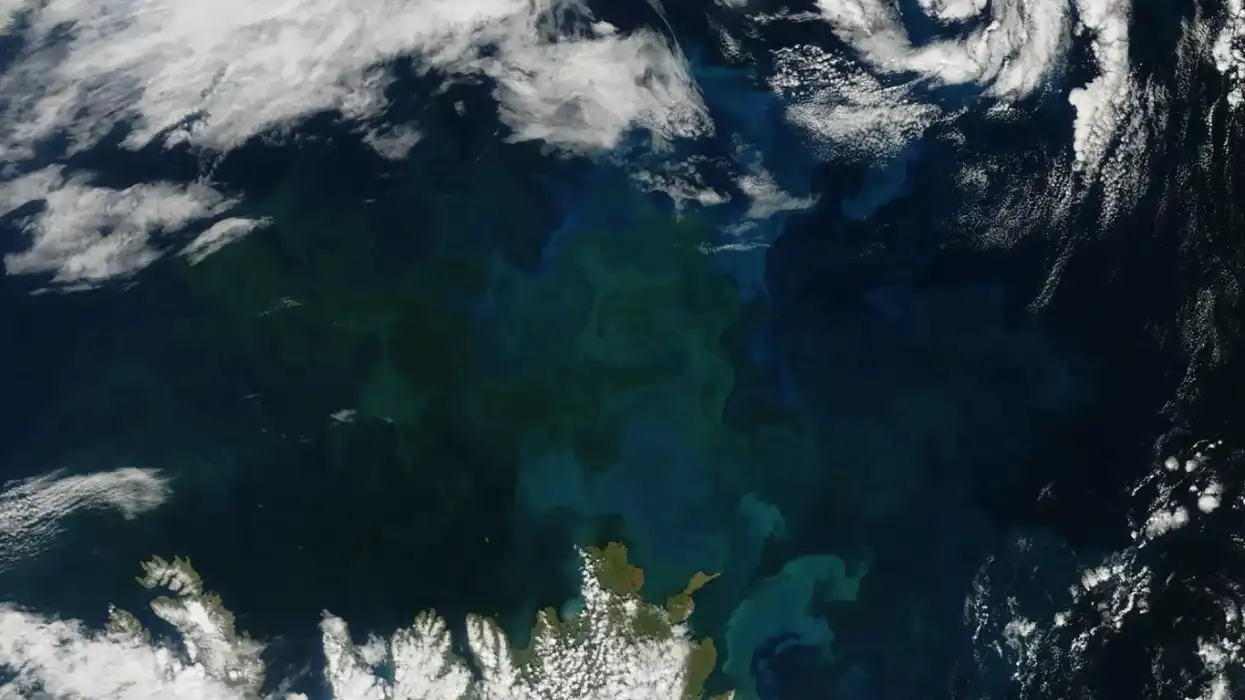Alex Daniel
Feb 13, 2024

The Earth's oceans are gradually getting greener
Nasa archive
Earth has long been known as the Blue Planet – but according to new imaging data from Nasa, that could be changing.
More than half of the planet’s oceans have shifted from blue to green over the last 20 years because of the gradual warming effect of climate change, Nasa said.
The worst-affected areas are around the equator, where the Earth is at its warmest. Scientists from the National Oceanography Centre said the change of colour is a sign of ecosystem disruption because of climate change.
“The reason we care about this is not because we care about the colour, but because the colour is a reflection of the changes in the state of the ecosystem,” said BB Cael, a scientist at the National Oceanography Centre in Southampton and author of the study published in Nature.
The 2023 study suggests that while the exact cause of the colour change is yet to be confirmed, it is likely to be down to plankton. These organisms are right at the bottom of the marine food chain, but also they play a role in producing much of the oxygen on Earth and have a stabilising effect on our atmosphere.
There are so many plankton that they scatter light in the oceans, and some have different pigments. A change in colour can give scientists a clearer idea of how plankton populations are shifting around the world.
The scientists compared the changes in colour with a computer simulation of what the oceans would look like if human-caused global heating had never taken place.
“We do have changes in the colour that are significantly emerging in almost all of the ocean of the tropics or subtropics,” said Cael.
“These are not ultra, massive ecosystem-destroying changes, they may be subtle,” said Cael. “But this gives us an additional piece of evidence that human activity is likely affecting large parts of the global biosphere in a way that we haven’t been able to understand.”
While scientists’ understanding of what the lasting effect of this ocean greening might be, Nasa has also launched a fresh project on the subject this year.
Its advanced satellite mission which launched in January 2024 called Pace – plankton, aerosol, cloud, ocean ecosystem – will measure hundreds of colours in the ocean rather than just the handful of changes we have so far.
“Making more meaningful inferences about what the changes actually are ecologically is definitely a big next step,” said Cael.
How to join the indy100's free WhatsApp channel
Sign up to our free indy100 weekly newsletter
Have your say in our news democracy. Click the upvote icon at the top of the page to help raise this article through the indy100 rankings.
Top 100
The Conversation (0)













